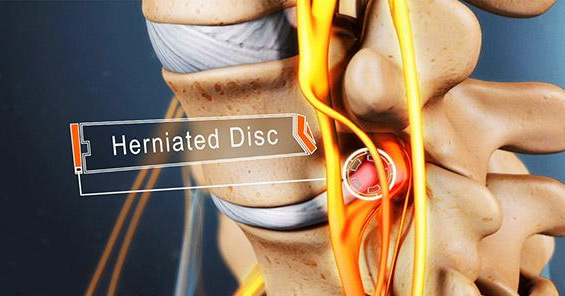
Our hectic lifestyle & 9 to 5 desk-bound jobs have affected our posture and left us cribbing in pain. No wonder 80 percent of the population experiences back and neck pain at least once in their lifetime.
Most of us ignore back pain, thinking it will get better with time. However, sometimes, it can lead to a herniated disc.
A herniated disc can hamper an individual’s everyday life and lead to severe problems. Various causes of a herniated disc include bad posture, injury, excessive pressure on the spine, and weak muscles.
Common treatment methods for a herniated disc are:
Adequate Rest
If you are suffering from a slipped disc, doctors will advise you to rest. So, slow down for some time and limit your physical activities. Do not lift heavy objects.
But don’t go for complete bed rest. Your body needs to move to be able to function properly. Your muscles will become stiff if there’s zero movement. Relax your spine and provide enough time for healing. Avoid vigorous exercising.
Moreover, to support your back, place a pillow below your knee while sleeping.
Physiotherapy
Physiotherapy can help treat a herniated disc.
Physiotherapists perform spinal manipulation and other therapy techniques to improve blood circulation and relieve muscle tension and pain.
They determine the root cause of the problem and correct the misalignment that causes pain. Based on the patient’s medical history, condition, and diagnosis, they establish a treatment plan and suggest exercises.
With the help of physiotherapy, you can strengthen your muscles. Not only does a therapist provide immediate pain relief, but also teaches you exercises to condition your body to prevent further injury.
However, not all slipped disc patients can be treated with physiotherapy. It is extremely important to consult a doctor before indulging in spine exercises and settling on a treatment option.
Acupuncture
Acupuncture is yet another form of alternative medicine that promotes physical and emotional well being. The treatment involves the insertion of thin needles at acupuncture points that further stimulates the central nervous system.
This, in turn, releases endorphins into the muscles, spinal cord, and brain. Endorphins are feel-good hormones and natural pain killers that relieve pain and stimulate the body’s natural healing abilities.
Medication
Some anti-inflammatory drugs are known to relieve swelling and reduce pain in some patients suffering from a herniated disc. Doctors generally prescribe ibuprofen or naproxen-based drugs. However, in cases of severe pain, doctors may suggest strong painkillers or narcotics.
Note: It is always advised to consult a doctor before taking any kind of medication. Long time consumption of these medicines can have severe side effects.
Epidural Steroid Injection
If none of the above-mentioned treatment options aid in pain relief, doctors might prescribe strong anti-inflammatory medication also known as an epidural steroid medication. These injections reduce the swelling of nerves and surrounding tissue, stop the release of painful chemicals, and promote healing.
You can get the medication injected from pain management Spokane Clinic. But before you opt for the procedure, make sure to consult your physician and discuss your medical history.
In addition to providing medication for chronic pain, pain management clinics help you manage pain with physical, behavioral, and psychological therapies.
Surgery
Most cases are treatable by non-surgical methods. However, in some cases, where symptoms persist for long, doctors might recommend surgery. Common surgeries for herniated disc are discectomy, Lumbar laminotomy, and Artificial disc surgery.
Final Thoughts
A herniated disc usually recovers with time. But chances are likely; it may happen again. It is wise to take some preventive measures.
So, exercise regularly, improve eating habits, and maintain a proper posture. Also, avoid lifting heavy objects.
Hopefully, this was helpful.